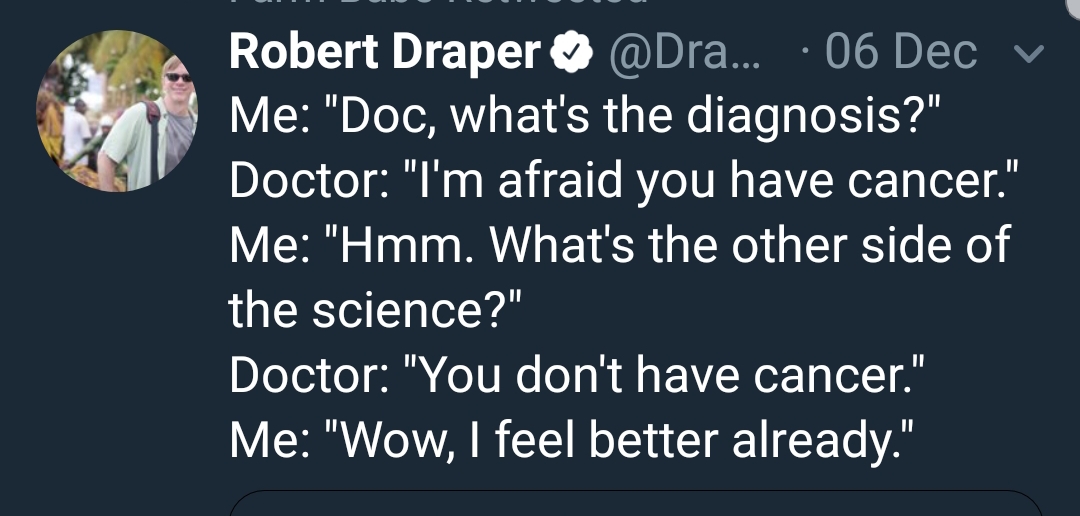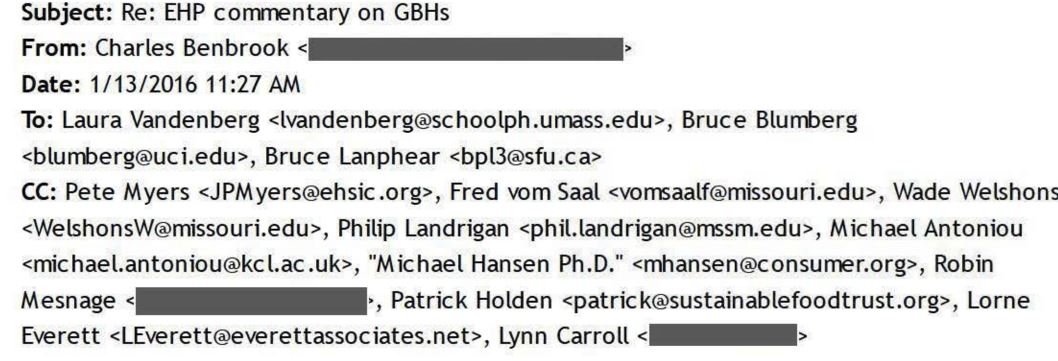Contrast that to government agencies, who are rarely allowed to engage in common-sense thinking for the public and instead have to be reflexively cautious, like with that same romaine lettuce issue by recommending that Americans throw out all of it two weeks after people got ill. (2) The CDC is rarely allowed to state what they really think about corporate media's desire to promote nonsense like Hari's so after multiple committee layers got through with a response the best they offered was “This outbreak strain of E. coli does not appear to be resistant to antibiotics” while FDA was a little more dismissive, stating, “these pathogens have existed for millions of years and are not new superbugs.”
What the science community wanted to do was loudly yell that she shouldn't be on television unless it's in an infomercial for all the products she hawks on her website.
You don't treat E. coli O157 infections with antibiotics so it is impossible that modern medicine caused lettuce to be recalled.
And Freedom of Information Act requests wouldn't add much more than official statements, everyone knows by now that official government email accounts don't discuss anything interesting. But academic email records still do.(3) University of California-Irvine's Bruce Blumberg, for example, who is so shady he got a FOIA because of his involvement with the Russian propaganda group Factor GMO, clearly thinks little of Mom's Across America activist Zen Honeycutt, even though she's on his side against GMOs, saying "she is batshit crazy."
Michael Hansen of Consumers Union (Consumer Reports), Dr. Oz's favorite anti-GMO subversive, is a little nicer, writing, "The sad thing is that you can tell some of these people, e.g., Moms Across America, multiple times about the problems of the use of ELISA tests, but they still persist in using them because it is relatively inexpensive."
No legitimate journal accepts ELISA as proof for small molecules
ELISA is the Enzyme-linked immunosorbent assay, it is what anti-science groups use when they want to claim they can "detect" glyphosate in cereal or breast milk or anything at all, in hopes that gullible journalists will fall for it. The test works by binding a glyphosate antigen to a radioactive antibody connected to an enzyme. The radioactivity makes it easy to detect. It's actually a valid test, at normal levels, but activists need to get to microscopic levels in order to be able to detect anything (like whichever compound they want to sue companies over) in anything (like cereal kids eat). For that, legitimate scientists would use gas chromatography/ mass spectrometry in order to be accurate.
So why don't activists use gas chromatography/ mass spectrometry when they must know ELISA is going to be wildly inaccurate for their purposes? They don't want accuracy, and they don't care about being right, they can pay to keep running tests until they get a false positive, then they write a press release.
A reviewer at any legitimate journal would throw out using the wrong test to suggest a provocative health impact. But activists are not even submitting their "results" to Environmental Health Perspectives or other lower tier publications that share their goals, they are sending their press release to Danny Hakim or Eric Lipton or other political sympathizers in media. And CNN's Ana Cabrera is probably now on a lot of those lists due to the willingness of her producer to give Vani Hari national attention spouting meaningless mumbo-jumbo about "points of contact" - as if some farm with sloppy processes is not going to poison people with feces on lettuce if they sell it direct to consumers rather than going to a factory.
What does it all mean? Not much. Though Blumberg et al. may not think much of Zen Honeycutt she also doesn't think much of them, and has said so on numerous occasions. She distrusts all scientists, for the same reason the scientists she distrusts don't trust the science consensus; it is in defiance of their world-view that science is relative. If she wants to claim that organic food cures autism, how can Blumberg dispute her when he stands against 200,000 chemists, biologists, and toxicologists endorsing the same products?
Of course, a universe of natural laws is not relative at all. The next time you see a journalist invoking names like Fred vom Saal, Gilles-Éric Séralini, Bruce Blumberg, Stephanie Seneff, Anthony Samsel, Pete Myers, or others in these FOIA emails, all claiming to be the "other side" of a science story, keep this in mind.

Credit: Robert Draper on Twitter
NOTES:
(1) Vani Hari also claims to be an expert on microwaves - unsafe, evil science! - and plane travel - it makes your internal organs shrink!
(2) A big improvement over last year, when they waited six weeks to decide the recall was worth mentioning.
(3) It's always a Who's Who of Anti-Science Zealots in this stuff. From Endocrine Disrupting Chemical cranks Pete Myers, Fred vom Saal to discredited economist Chuck Benbrook to Dr. Oz's favorite Non-GMO prophet Michael Hansen to others who seek to create critical mass for their beliefs.

Good luck finding groups of scientists conspring to help each other defend scientific fields. We are instead all anarchists, the bulk of whom are so obsessed with complaining about the "tone" of each other they never do anything constructive for the public.




Comments